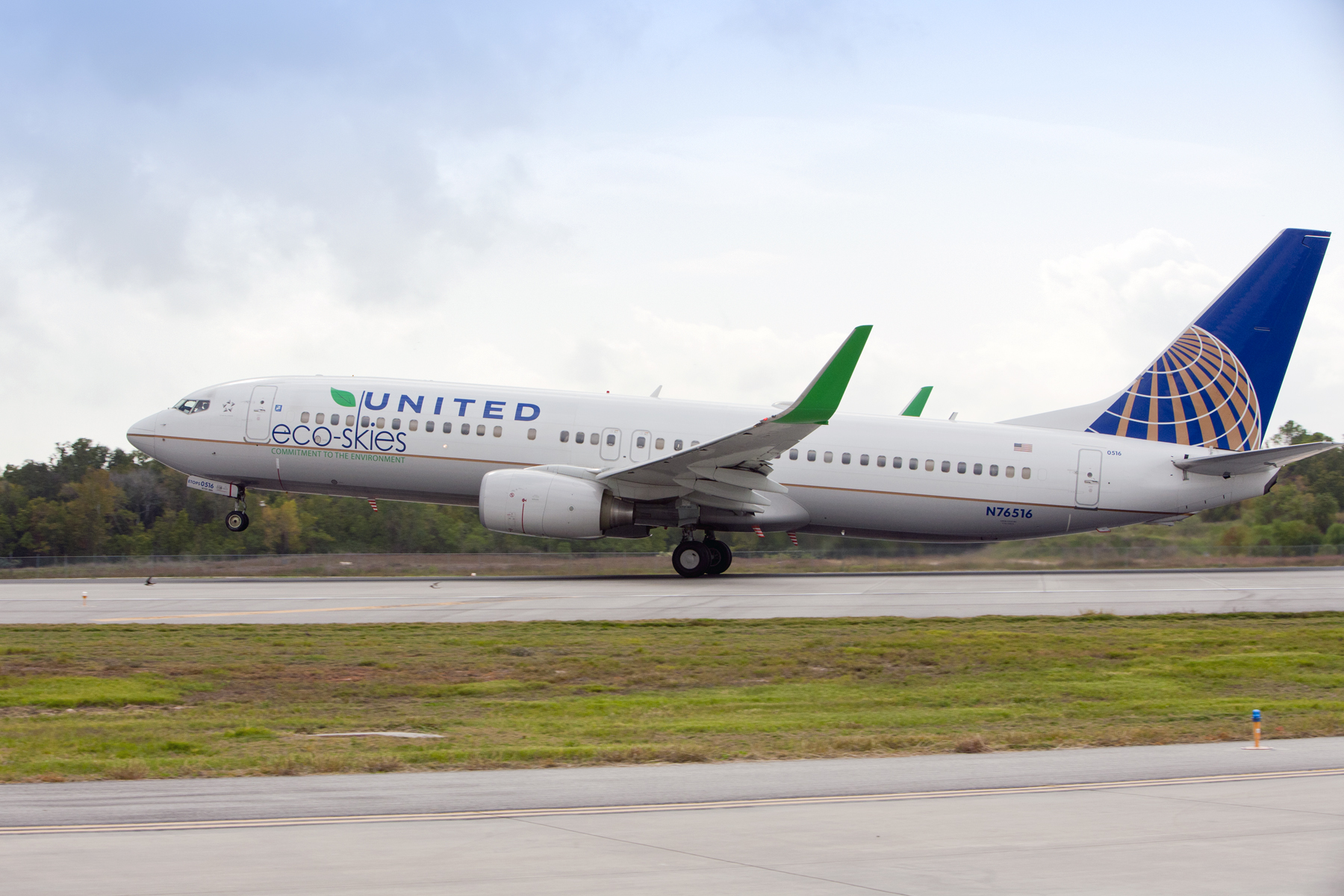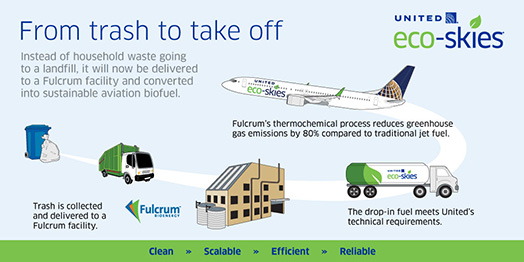Every kid grows up thinking about what the future will look like, but is that still true now that we live in a world where tiny computer communicators exist in our pockets and consumer-grade virtual reality and self-driving cars will soon be regular parts of every day life? I never thought “the future” would be here so fast.
News broke last week that Elon Musk’s Hyperloop would start construction in 2016. Soon, we’ll be traveling in tubes and eating soylent green. Okay, fine, maybe not the last part. But travel is changing and the airlines, long loath to change anything seem to be catching up to the rate of technological advancement.
A story came out last week on NPR’s excellent The Salt blog about how biofuels are gaining traction in the transportation world. Biofuels are made from converting the methane from decomposing food waste or manure using anaerobic digesting machines. The gas can then be processed into fuel for use in cars, trucks, and even airplanes.
United Airlines has joined the biofuel revolution in a major way with their Eco-Skies program. They purchased 15 million gallons of renewable jet fuel made from rendered beef tallow — aka beef fat. It’s the same stuff that McDonald’s used to use to fry their fries back before they switched over to vegetable oil. The fuel is earmarked for flights going from LA to SF and vice versa, which means California airports may start smelling a lot better in the near future.
Southwest is also in on the biofuel game by purchasing three million gallons of jet biofuel made from forest waste. They join UPS and FedEx as major companies exploring alternative energy sources and the list is just going to get longer and longer.
What I love about this is that it solves multiple problems with one gassy stone. Instead of piling up extra food waste in garbage dumps, allowing harmful methane (a known destroyer of ozone) to be released, and digging further into our land for oil, biofuel allows us to keep all of that waste out of the dump, all of that gas out of the atmosphere, and all of that oil in the ground (although, of course, it will certainly be used one way or another). It’s a true green win-win.
I’d love to see every airline jump on the metaphoric biofuel train as soon as possible. The more renewable energy sources we can exploit, the better off we’ll be.
Main photo via United Airlines



Leave a Reply